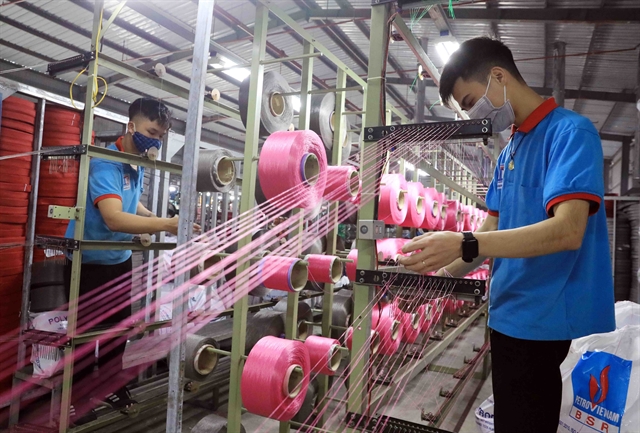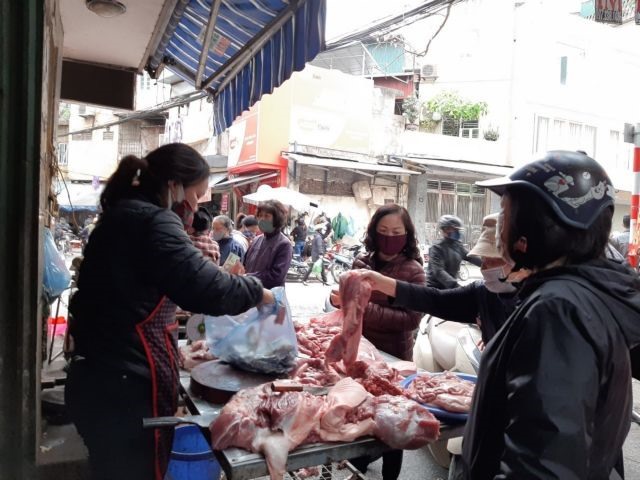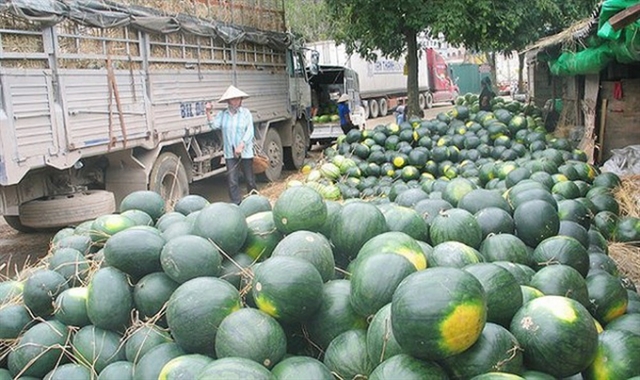
HÀ NỘI Fitch Ratings has revised the outlook on the long-term issuer default ratings (IDRs) of two State-owned banks and a wholly foreign-owned bank in Việt Nam to Stable from Positive, and the outlooks for two joint stock commercial banks to Negative from Stable.
The affected banks include VietinBank (IDR: 'BB-'; Outlook revised to Stable from Positive; Viability Rating (VR) downgraded to 'b-' from 'b'); Vietcombank (IDR: 'BB-'; Outlook revised to Stable from Positive); ANZ Bank Vietnam Limited (IDR: 'BB'; Outlook revised to Stable from Positive); ACB (IDR: 'B+'; Outlook revised to Negative from Stable); and MB (IDR: 'B+'; Outlook revised to Negative from Stable).
According to the rating agency, these actions stem from the sharply lower - albeit positive - growth that Việt Nam faces from the coronavirus pandemic and its potential to negatively affect the banks' credit profiles in the near term, at least. Fitch last week affirmed Việt Nam’s rating at ‘BB’, but revised the country’s outlook to stable from positive.
“The IDRs of all five banks were affirmed at existing levels as we expect a firm economic recovery in 2021, although there will be lingering effects on the banks,” the rating agency said in a report released on Friday.
Fitch forecasts Việt Nam’s full-year GDP growth at 3.3 per cent, which would be slowest pace since 1987. In response, the State Bank of Việt Nam (SBV) cut its policy rates and directed banks to extend debt relief to affected borrowers, while easing requirements on loan classification and provisioning. As a result, the banking sector has become a key intermediary - and will likely bear much of the policy burden - of financial relief.
“Fitch has lowered Việt Nam's operating environment midpoint to 'b+' from 'bb-', but kept the outlook at stable as we expect the slowdown to be sharp before a sizeable recovery in 2021, with growth forecast at 7.3 per cent.”
According to Fitch, the sudden loss of economic momentum that banks in Việt Nam have grown accustomed to in recent years will most directly affect their asset quality and earnings. Moreover, risk appetite, capitalisation and governance scores could also be lowered should pressure for banks to undertake policy lending manifest in large scale non-risk-based lending.
“The outlook on the asset quality factor has been lowered to negative from stable for all Vietnamese banks to which we assign a VR. Brewing asset-quality stresses, even if not all are reported as impaired during the relief period, mean there are deferred credit impairments accruing.”
The negative outlook also considers banks' rapid credit growth in recent years, especially in consumer loans and unsecured lending, which have not been tested through a down cycle. Some banks' credit allowances have lagged their dash for market share, such that loss-absorption buffers remain thin at many banks. More than a few banks continue to hold Vietnam Asset Management Company bonds - a legacy of bad debt from the 2010-11 downturn, Fitch said.
“We expect profitability to come under significant pressure due to waning credit demand and lower lending rates after the SBV's rate cuts and authorities' orders to reduce debt burden for affected borrowers. Deposit rates have not declined as quickly as term deposits reprice with a lag and banks typically put a floor under real interest rates to compete for depositors' funds. The resultant margin compression, slower credit growth, and lower fee incomes mean banks have lower core earnings to buffer against anticipated increases in credit costs. Our outlook on the banks' profitability is negative.”
Thin capital buffers are another area of weakness that Fitch has been wary of, with some major banks still struggling to comply with local Basel II requirements.
“The outlook on most Fitch-rated banks' capitalisation factor score is stable as we expect banks to be sufficiently profitable to support slower balance-sheet growth,” Fitch said, noting the exception is VietinBank, which has fallen behind original Basel II implementation timelines. Vietinbank's capitalisation outlook is negative, reflecting Fitch's assessment of its weaker asset quality than domestic peers. VNS

















.jpg)













